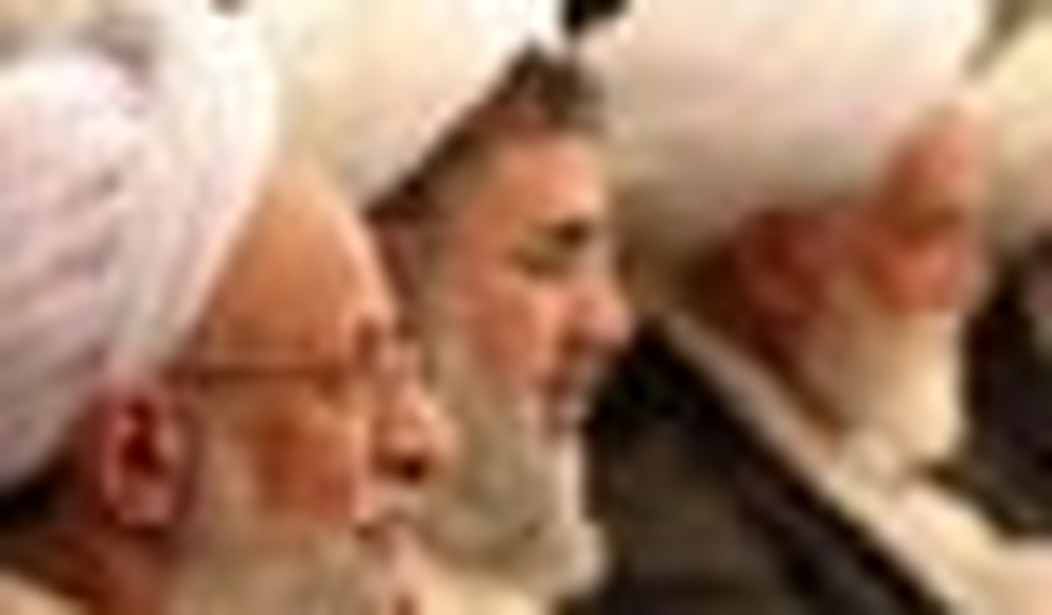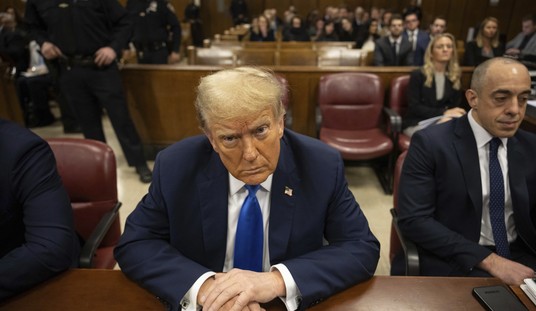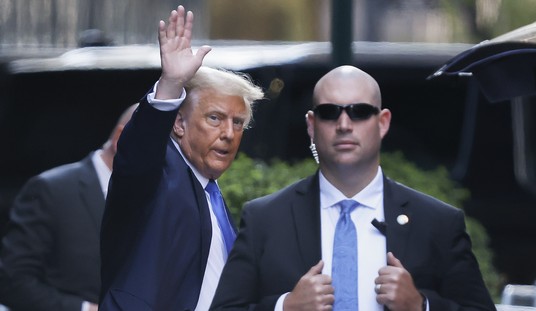In its 32 years, the Islamic Republic of Iran has killed lots of U.S. Marines. The Iranians were behind the 1983 Beirut barracks bombing, which killed hundreds of Marines. They were behind the bulk of deadly IEDs in Iraq and Afghanistan, which killed and maimed hundreds more. Iran has been killing Americans all over the world for decades. And now the Tehran regime is set to kill another: Amir Mirzaei Hekmati, a 28-year-old American, Arizona-born, Michigan-raised — and former Marine. Hekmati was visiting family in Iran last summer when he was apprehended by authorities. This week, the regime has decided to give him the death sentence.
Hekmati reportedly worked for a New York-based video game company, which had a “hearts and minds” contract with the CIA. And so the mullahs accuse him of being a CIA spy. The extent of Hekmati’s espionage — whether nonexistent or knee-deep — shouldn’t matter. The man is a captured American citizen set to be murdered by a sworn enemy.
We are at a breaking point in 2012. Iran, this national security issue of such magnitude, will reach a crescendo during this year’s presidential election. President Obama and the Republican candidate will spend the better part of the year debating how to handle Iranian hostility with prudence. The wisest course is narrowing down to the only course: regime change in Tehran.
This does not mean military action — nor does it mean invasion, conquest, or occupation. Regime change, in the case of Iran, means open support for a “Persian Spring.” It means replicating the Reagan-Thatcher model vis-à-vis Lech Walesa in Poland and the late Vaclav Havel in Czechoslovakia: supporting Iranian dissident and opposition groups rhetorically, politically, financially, materially, and morally until a popular uprising — simmering in Iran since the Green Movement in 2009 — brings down the few hundred or so theocratic mullahs threatening the world.
We must do this for many reasons, but four big ones come to mind.
1. To avoid a war.
If the Iranian regime is not replaced, it will lead to war. The Israelis may preemptively attack Iran’s nuclear facilities. If the Israelis do not take action, the United States might do so. And if neither Israel nor the U.S. takes action, the Iranians themselves will continue to be the aggressors geopolitically.
Bringing down the mullahs internally would turn our most hostile enemy into a natural ally. It is unclear what type of Iranian government would emerge following the downfall of the mullahs. But one thing is clear: unlike Egypt and Libya and other Arab uprisings where the Muslim Brotherhood might take over for good, the Iranian people are far friendlier to the United States. Iran’s 70 million people are amongst the youngest in the world. They want to be connected to the rest of the planet. They want the freedom to worship — or not worship — as they please. They want to use the Internet free from censure; to assemble free from threat; to read, write, and speak free from intimidation. They do not want war with the West. They do not want to fight and die to restore the twelfth century or to bring back the Twelfth Imam.
2. To avoid nuclear blackmail, nuclear proliferation, and nuclear terrorism.
Should nothing be done — should the mullahs obtain a nuclear weapon in 2012 — the world will enter, as Churchill once phrased it, “the abyss of a new Dark Age, made more sinister, and perhaps more protracted, by the lights of perverted science.” Never before have such apocalyptic, self-destructive, suicidal religious psychopaths had such cataclysmic technology. The plausibility of nuclear terrorism does not need to be discussed here: Either one soberly comprehends this threat or one does not. Many do not understand this threat and its long-term implications.
But the issue need not be a mushroom cloud over Manhattan. Imagine the Iranian supreme leader making demands of the world, with the implicit threat of a nuclear suitcase-armed Hezbollah or al-Qaeda operative in Washington, D.C., London, Paris, or Tel Aviv ready to “blow” should these demands not be met. This is the world of 2013 and 2014 should Iran be allowed to go nuclear: the whole world would be held hostage to the nuclear blackmail of the mad mullahs.
In addition, the Saudis, the Egyptians, the Turks, and maybe even the Jordanians would all pursue nuclear weapons to deter Iranian belligerence. (Not to mention the Israeli, Pakistani, and Indian nuclear arsenals.) We would have a wide-ranging Middle East nuclear arms race. Nobody should think such a development would end well.
3. Peace in the Middle East.
When it comes to state sponsorship of jihadist terrorism, the Islamic Republic of Iran is the mothership. Iran supports every relevant terrorist group around the world, including al-Qaeda. In fact, a recent court ruling charges Iran with supporting the 9/11 hijackers. The mullahs have waged war against U.S. forces in Iraq and Afghanistan for years, and have the blood of hundreds, if not thousands, of Americans on their hands. For these reasons alone, the Iranian regime should be overthrown in its own right. But should they gain nuclear weapons, the entire Middle East would fall under Tehran’s dominion — including Iraq, which the United States has just withdrawn from.
Should Iraq fall under the sway of Iran, this would turn the eight-year war from a victory into a defeat. All of our sacrifices will have been for naught. We are already seeing the rumblings of this, as the Obama administration has recently transferred American-killer and international terrorist Ali Mussa Daqduq over to Iraqi custody. They will likely free him to his Iranian sponsors. Expect to see Daqduq on the battlefield again in no time.
Yet should the Iranian regime fall, victory in Iraq is secured. Also, about half of the Afghan insurgency would be defeated. The Syrian regime — Iran’s little brother; Mussolini’s Italy to Hitler’s Germany — would collapse. The Hezbollah terrorist regime in Lebanon would collapse. The Hamas terrorist group in Palestine would implode.
In short, regime change in Iran would mean we “win” the entire Middle East, from Tehran to Jerusalem, from Persia through Mesopotamia to the Mediterranean. The so-called “Shi’ite crescent” would be pacified and Shi’ite fundamentalism itself would be ideologically discredited.
4. Pakistan and Saudi Arabia — the long-term threats.
Regime change in Iran would prevent a regional war; prevent nuclear proliferation and terrorism; do away with the world’s largest supporter of terrorism; turn an enemy into a genuine friend; defeat the Shi’ite-wing of Islamic fanaticism; and bring stability and peace to the Middle East. There is not a greater, more imminent, more advantageous strategic objective to the United States than overthrowing the mullahs. Considering the hostility of the Iranian regime and the comparative warmth of the Iranian population, there is no starker cost-benefit ratio in all the Middle East.
But the downfall of the mullahs is only the beginning. The long-term threats to the United States are not open state sponsors of terrorism like Iran (and Syria), but rather so-called “allies” that covertly support our enemies, such as Pakistan and Saudi Arabia. The Pakistani and Saudi intelligence agencies secretly assist the Sunni-Wahhabi fanatics of al-Qaeda, the Taliban, Lashkar-e-Taiba, and other South Asian jihadist groups, and the Muslim Brotherhood front organizations clandestinely operating in Europe and the United States.
The United States has not adequately addressed Pakistani and Saudi support for terrorism for three reasons: Pakistan’s nukes, Saudi Arabia’s oil, and the Islamic Republic of Iran’s more pressing war against the West. Defeating the mullahs in Tehran would end overt state sponsorship of terrorism, allowing the United States to geopolitically wean itself off of Saudi Arabian oil, and freeing us up to develop longer-term counterintelligence capabilities against Pakistan and Saudi Arabia until a viable political alternative emerges in Islamabad and Riyadh.
We cannot proceed with any of this until the more ominous, looming near-term threat from Iran is ended — which must happen in 2012.







Join the conversation as a VIP Member